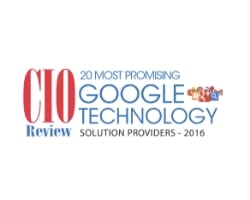Data-driven marketing has emerged as a powerful tool. With the vast amounts of data available, marketers can now make informed decisions and create highly personalized campaigns. Gone are the days of relying on assumptions or gut feelings. Instead, modern marketers are increasingly embracing data as their most reliable source of information about their audience.
Consider these compelling statistics that underscore the importance of data-driven marketing:
- A staggering 87% of marketers acknowledge that data remains their company’s most under-utilized asset.
- In recognition of its potential, 40% of brands intend to boost their data-driven marketing budgets.
- Perhaps most impressively, businesses employing data-driven strategies drive five to eight times more ROI than those that do not.
This impact of data has given rise to the concept of “Data-Driven Personalization,” which has become more crucial than ever before. Salesforce research reveals that 66% of consumers now anticipate companies to comprehend their unique needs and expectations, while 52% expect all offers to be tailored to their preferences.
This shift in consumer expectations underscores the inadequacy of a generic “one-size-fits-all” approach. Instead, companies must harness the power of data and behavioural science to discern precisely what consumers desire and when they desire it, enabling them to deliver highly targeted and relevant marketing experiences.
What do you need to know about data-driven personalization?
Data-driven personalization is a strategic approach to marketing that relies on utilizing relevant data to deliver personalized experiences to individual consumers. It involves leveraging data insights to create tailored content, offers, and recommendations, aiming to engage customers on a more personal level and increase their overall satisfaction.
The process of data-driven personalization begins with the collection of various types of data; this can include, but is not limited to:
- Demographics (age, gender, location, etc.): Gathering demographic data allows marketers to segment their audience based on key characteristics such as age, gender, location, income level, and more. This information provides essential insights into the preferences and needs of different customer groups. For example, a beauty brand may use demographic data to target specific age groups with skincare products tailored to their unique concerns.
- Browsing behavior (websites visited, time spent on specific pages): Tracking browsing behaviour provides valuable information about customers’ interests and preferences. By analyzing the websites they visit and the time spent on specific pages, marketers can understand what content or products appeal most to individual users. For instance, an e-commerce site can use this data to recommend relevant products based on the customer’s recent browsing history.
- Purchase history (products or services bought): Understanding customers’ past purchase behaviour is crucial for personalized marketing. By analyzing the products or services bought by customers, marketers can identify their preferences, buying patterns, and potential upsell or cross-sell opportunities. For instance, an online bookstore can suggest related books based on a customer’s previous purchases, increasing the likelihood of repeat business.
- Social media interactions (likes, comments, shares): Social media has become a treasure trove of valuable data for marketers. Interactions such as likes, comments, and shares provide insights into customers’ engagement with specific content and their affinity for particular topics or brands. Marketers can use this data to create content that resonates with their audience and devise social media campaigns that drive higher levels of engagement and brand advocacy.
By combining these different types of data, marketers can create highly personalized and targeted marketing campaigns. For example, an online clothing retailer might use demographic data to segment its audience into different age groups, then analyze browsing behavior to identify each group’s preferred clothing styles. Next, they can use purchase history data to determine the products that are most popular within each age group. Finally, by examining social media interactions, they can understand which marketing messages and content resonate most with their audience, leading to better-tailored campaigns and improved customer engagement.
Data-driven personalization empowers marketers to deliver the right message to the right audience at the right time, ultimately driving better results and customer satisfaction.
Which tools are key for personalization in data-driven marketing?
Data-driven personalization has given rise to a variety of services and solutions aimed at helping businesses implement this strategic approach effectively. These offerings encompass software, hardware, and equipment designed to streamline the process of collecting, analyzing, and utilizing data for personalized marketing campaigns.
Here are some technology and equipment options for creating customized and personalized direct mail:
- Variable Data Printing (VDP): VDP technology facilitates the personalized printing of content such as text, images, and graphics on individual mail pieces. This is accomplished by integrating databases or customer data into the printing process. VDP empowers the creation of distinct messages, offers, and imagery tailored for each recipient.
- Data Analytics and Segmentation Tools: Employ data analytics tools to segment your customer base according to demographic data, purchase history, behavioral patterns, and preferences. These insights enable the refinement of direct mail content for specific audience segments, enhancing relevance and engagement.
- Customer Relationship Management (CRM) Software: A robust CRM system adeptly manages customer data and interactions. It seamlessly integrates with your direct mail campaign, ensuring the precise delivery of messages to individuals based on their brand interactions and historical engagement.
- Design Software: Utilize design software to craft visually captivating and personalized mail materials. Templates can be individually customized with recipient names, images, and personalized content.
- Digital Printing Equipment: Essential for variable data printing, high-quality digital printers facilitate efficient and cost-effective production of customized content, even for smaller print quantities, ideal for personalized direct mail initiatives.
- Personalization Platforms: Dedicated platforms provide comprehensive solutions for personalized direct mail campaigns. These platforms often integrate seamlessly with CRM systems, offering tools for data integration, segmentation, content customization, and automated campaign execution.
- QR Codes and Augmented Reality (AR): Integrate QR codes or AR technology into mail pieces to provide recipients with the ability to access personalized digital content, such as videos, interactive experiences, or exclusive offers, by scanning with their smartphones.
- PURLs (Personalized URLs): Incorporate personalized URLs within mail content, directing recipients to personalized landing pages. These pages dynamically display tailored offers, content, and calls to action based on recipient profiles.
- A/B Testing Software: Employ A/B testing software to iteratively evaluate different iterations of personalized mail content, identifying the most effective elements in driving recipient responses. This process refines messaging and design for optimized campaign outcomes.
- Multi-Channel Integration: Seamlessly combine direct mail with other communication channels like email, social media, and SMS to create a unified and integrated customer experience. This integration maximizes the impact of personalized messaging.
- Automation and Fulfillment Systems: Streamline large-scale personalized direct mail campaigns by automating printing, addressing, and fulfillment processes. This enhances efficiency, reduces manual labor, and accelerates campaign execution.
- Secure Data Handling: Given the involvement of sensitive customer data, prioritizing data security and privacy is imperative. Implement encryption, secure data storage, and compliance with pertinent data protection regulations to maintain the confidentiality of personalized direct mail initiatives.
The landscape of data-driven personalization services is diverse and constantly evolving, encompassing a range of software, hardware, and equipment solutions. Businesses can leverage these tools to harness customer data, automate personalization efforts, and deliver tailored experiences that resonate with individual consumers, ultimately leading to improved engagement, conversion rates, and customer satisfaction.
Why do you need data-driven personalization in your marketing strategy?
Data-driven personalization in marketing offers several significant benefits that can greatly enhance a company’s marketing efforts and overall success:
- Enhanced Customer Experience: Personalized marketing messages and content cater to individual preferences and needs, leading to a more positive and relevant customer experience. When customers feel understood and valued, they are more likely to engage with the brand and make repeat purchases.
- Improved Customer Engagement: Personalized marketing increases customer engagement by providing relevant content and offers. This leads to higher click-through rates, longer website visits, and increased interaction with marketing materials.
- Higher Conversion Rates: When marketing messages are tailored to individual preferences, customers are more likely to convert and make a purchase. Personalized recommendations and offers can significantly boost conversion rates and drive revenue growth.
- Increased Customer Loyalty: Personalization fosters a sense of loyalty and connection between customers and the brand. Customers are more likely to stay loyal to a brand that consistently meets their needs and understands their preferences.
- Better Customer Retention: By using data to understand customer behaviour and preferences, marketers can identify potential churn risks and take proactive measures to retain customers. Personalized retention strategies can significantly reduce customer churn.
- Smoother Customer Journey: Personalization enables marketers to create a seamless customer journey across different touchpoints. Whether it’s through email, website, social media, or other channels, customers experience a consistent and tailored interaction with the brand.
- Enhanced Brand Perception: When a brand consistently delivers personalized experiences, it is perceived as more customer-centric and forward-thinking. This positive perception can enhance brand reputation and attract new customers through word-of-mouth referrals.
- Data Insights for Continuous Improvement: The data collected through personalization efforts provides valuable insights into customer behaviour and preferences. Marketers can use this data to continually refine their strategies and better understand their target audience.
Personalized marketing, though highly effective, does come with its share of challenges. Chief among them are privacy concerns and the potential risk of data breaches, demanding businesses handle customer data ethically and responsibly. Implementing a personalized marketing strategy can also be resource-intensive, requiring considerable investments in time, resources, and advanced technology.
However, for enterprises committed to putting in the effort, the rewards of personalized marketing can be significant and yield substantial benefits.
Conclusion
Data-driven personalization is revolutionizing the marketing world, empowering companies to connect with consumers on a personalized level and tailor their efforts accordingly. This approach fosters enduring relationships, drives heightened engagement, and ultimately leads to increased revenue.
In today’s fast-paced digital landscape, embracing data-driven personalization is not just a luxury but a necessity to remain competitive and thrive in the ever-evolving marketplace.
About Millennium Agency
Millennium Agency is an exceptional B2B branding, positioning, and digital marketing firm led by an accomplished expert team dedicated to providing an extensive range of marketing services tailored to meet your business needs.
At Millennium Agency, we employ time-tested research strategies that yield measurable and tangible outcomes. Why? Because we understand that today’s customers make purchasing decisions based on brand experience rather than price alone. By adopting a proactive approach to market research and digital strategy, we stay ahead of the competition and assist our clients in becoming brand-savvy leaders in their industries.
With over 25 years of experience, we have specialized in creating inspiring brands, impactful messaging, and executing effective marketing strategies. As your trusted partner, Millennium Agency will assist you in developing an efficient digital marketing strategy to boost your online sales.
Schedule a meeting with me at www.calendly.com/lindafanaras to learn more.


























